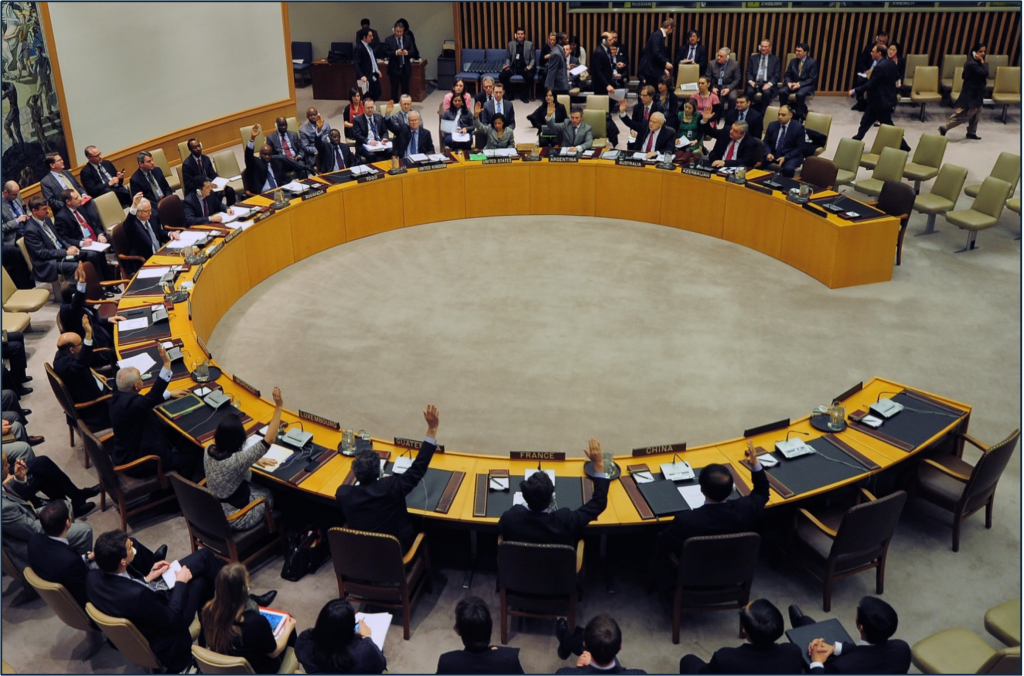One of the most significant stories ahead of the annual gathering of world leaders at the United Nations this week is the United States’ recent announcement that it supports expanding the permanent members of the U.N. Security Council to include two seats for African countries. It’s a remarkable and long-overdue breakthrough to give Africa the stronger voice that our nations deserve on the world stage.
If other countries – specifically the five permanent members of the council – follow suit, this urgently needed change will make the Security Council more relevant and responsive to the world we live in today.
Since its establishment in January 1946, the only permanent seats on the powerful U.N. Security Council have been held by the nuclear-armed victors of World War II: the U.S., the United Kingdom, the Soviet Union (now Russian Federation), China and France. Even after a Security Council reform in the mid-1960s that expanded membership from 11 to 15, Africa still has no permanent representation.
This injustice stems from a long and painful history of colonialism and power imbalances that persist to this day: the legacies of slavery, imperialism, exploitation and the theft of our natural resources. Africa has long been left out of global decision-making, and our voices have been drowned out, resulting in a lack of representation on issues that directly affect our continent.
Consider that the biggest issues the U.N. Security Council grapples with every day – conflict prevention, peacekeeping operations, conflict resolution and sustainable development – affect us more than almost any region of the world. Yet, we have been rendered virtually voiceless. This bias reinforces the notion of Africa as a passive actor in shaping global affairs.
Expanding the permanent membership of the Security Council is an important priority of my government in Sierra Leone and our partners in the African Union. That’s why last month, when Sierra Leone held the rotating presidency of the Security Council, I told fellow world leaders that Africa cannot wait any longer; it is absurd for the most powerful world body to continue without permanent representation of Africa.
Only nine months ago, Sierra Leone returned as a non-permanent member of the Security Council after an absence of 53 years. Twenty-five years ago, our shattering civil war was among the thorniest concerns on the Security Council’s agenda. Today the international community views us as a liberal, progressive, confident and enterprising nation capable of shaping and grappling with the Security Council’s agenda.
But our transformation is emblematic of a growing, but not yet fully realized, recognition of the need for equitable representation. For too long, the nations that have dominated international institutions such as the U.N. Security Council have marginalized Africa, leaving us at the periphery without a permanent voice.
The leadership of the African Union’s Committee of Ten Heads of State and Government on the reform of the U.N. Security Council (also known as the C-10), which I coordinate, has consistently advocated for two permanent seats on the Security Council and an additional two seats in the non-permanent category. We are also advocating for the abolition of the crippling power of permanent members to veto. If U.N. member states wish to retain the veto, our view is that it must be extended to all new permanent members.
In bodies such as the U.N. Security Council, there must be African leadership and African solutions for our challenges. From persistent to emerging conflicts, terrorism, man-made famine and humanitarian criseis, we face myriad complex issues that require global cooperation and solidarity, and African leadership must be involved in international solutions. By prioritizing Africa’s concerns, the U.N. can demonstrate its commitment to addressing the root causes of conflict and instability on the African continent.
These proposed reforms, and the justice and equity they represent, will not only benefit African countries but the rest of the world as well. Growing fortunes and challenges anywhere in the world reverberate quickly and powerfully across the globe. Frankly, it is in the self-interest of countries that dominate international institutions to give a greater voice – and to listen – to the second-most populous continent and home to a significant portion of the world’s nations.
While the U.S. endorsement of Security Council reform and expansion could quicken the pace of negotiations, the process remains complex. Other regions of the world have also made the case for more inclusive permanent membership in the Security Council. Africa has been prioritized because of the unique historical injustices committed against the people of our continent.
All of the permanent members of the Security Council – the P5 – have at some time supported enhanced representation for Africa. It is time to put those words into action. We are heartened by U.S. support and broad support from U.N. member states for our two seats, and hope this will invigorate negotiations. The U.N. can no longer delay these urgent and necessary reforms.
About the Author

Julius Maada Bio is president of the Republic of Sierra Leone and coordinator of the African Union Committee of Ten Heads of State and Government on the Reform of the United Nations Security Council.
